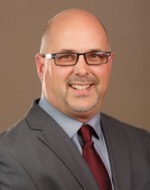Demanuel
Today’s update focuses on the challenge of our budget for the coming fiscal year. As was recently published, we will be holding a Public Hearing for comments on today at 7 p.m. in City Hall.
I wanted to take an opportunity to share some highlights of the budget and my perspective on it.
Let me start with what I expect will be welcome news. The sewer tax rates for the coming fiscal year will remain unchanged.
Additionally, the capital improvement bond surcharge will not be applied to sewer tax bills in the coming year.
Payments which are due on the bond will be covered in our operational budget.
We should not allow this news to deter us from focusing on the current situation. We face many operational challenges and addressing our aging infrastructure is a complex and often times slow moving process.
Let me begin with some highlights of the budget (letter continues after the document).
We took a very close look at expenditures to identify opportunities to direct our revenue to areas that will contribute to operational improvement and meet the expectations set forth in the CT DEEP and EPA Orders.
Looking at historical trends in various budget line items, we have reallocated approximately $162,000 to this effort.
Here are some of the highlights:
Our People: We have planned for a projected 2 percent salary increase which is subject to contract negotiations.
The WPCA is not directly involved in these negotiations as our employees contract falls under the same as Derby Public Works.
We have invested $60,000 to bring on board an additional Operator 1 to help us begin recovering from our staffing shortages.
This will help us in addressing operational improvement. We continue to be staffed based on two employees being on leave and carrying those positions is reflected in the budget.
Additionally, we have allocated an increase of $41,500 over the prior year to hire a qualified lab manager.
We believe this is a first and critical step towards earning CT DEEP’s approval to bring our lab testing back on site.
A move that will contribute to operational improvement by allowing faster turnaround of testing results so that corrective actions can be taken.
The lab is a significant focus of the investigations and there is much work to do in rebuilding an internal lab program. In the meantime, we expect to continue sending samples out for lab analysis and this is reflected in our budget.
Engineering: We have allocated an additional $40,000 toward engineering investment for initiatives outside of the capital improvement bond project.
This will allow us to begin the initial work on addressing the sewer system evaluation survey SSES Phase II findings.
The plan was recently approved by CT DEEP. One of the first areas we will be focusing on is Inflow & Infiltration or “I & I.” You may be asking, what does this mean?
I & I is fresh water being introduced into the sewer lines and subsequently into the treatment plant.
This fresh water does not need to be treated and should not be there. So why is it? The fresh water finds its way into the sewer system through many sources such as roof litters, sump pumps and catch basins which are connected to the sewer lines. This is not only an illegal connection, but it puts an unnecessary workload on the equipment.
Removing theses sources will be a significant effort and will require the WPCA, City Officials and the Public all working together.
If we are successful, we will all benefit. There will be more on this in the near future. I am excited that we have been able to gain approval on the SSES Plan and fund the initial work.
Legal: Recognizing that our work with order compliance is not complete, we have allocated an additional $20,000 for legal expenses in the coming fiscal year. We expect to continue working with the City and the Bond Infrastructure Committee on the appropriate allocations of these expenses.
Finally, is our most critical risk, the Plant Contingency Plan.
As I shared in my March perspective column, Derby will be participating in a Regionalization Study for the Naugatuck Valley.
Completion of that study and CT DEEP approval will be required before we can begin modernization work at the Plant. We anticipate ending the current fiscal year with about $2.3 million in cash on hand.
While this represents good financial stability of the WPCA, it may be necessary to draw from this source should we experience a catastrophic equipment failure at the plant.
While our budget plan represents deliberate actions aimed at improving operations and to begin reducing the stress on plant equipment, we cannot accurately predict or control when a significant failure might occur.
Better allocations of workload, I & I reduction and moving forward with our Pump Station replacements are our most accessible mitigation steps at the present time.
We do expect to be going out for bid on two of our Pump Stations in the next few weeks.
If you have any questions about our proposed budget, please consider joining our public hearing.
Don Demanuel
The author is the chairman of the Derby WPCA, an appointed, volunteer position.